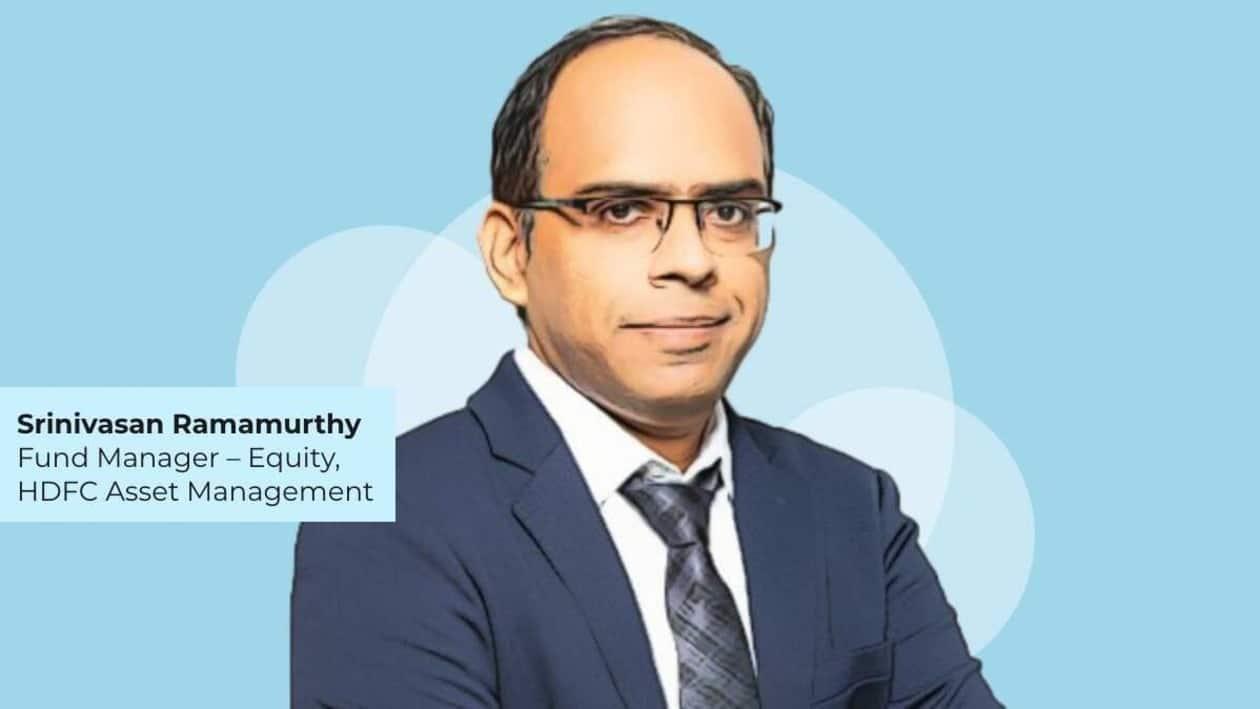In the wake of market uncertainty, investors are generally curious to know if it’s wise to continue to invest in equities or to rebalance their portfolio. Fund managers often try to calm the investors’ nerves by highlighting that equities tend to deliver superior returns as compared to other traditional asset classes in the long run. Besides, several studies have emphasised the role of asset allocation and investment discipline in determining portfolio returns.
On these lines, Srinivasan Ramamurthy, Fund Manager – Equity, HDFC Asset Management tells MintGenie about the ongoing market uncertainty, inflation and the pragmatic ways to create a retirement corpus through mutual fund investment.
And for investors who seek lower volatility, he suggests investing through hybrid funds which have lower equity exposure.
Edited Excerpts:
Financial markets have been under pressure for some time now. Has this changed the investment strategy of any of the fund schemes you manage in a substantive way, or do you consider this as a part of usual market movement?
The investment strategy for funds is a combination of fund mandate, top-down macro-outlook (driving sector positioning) and bottom-up security selection. While the fund mandate remains stable, the macro-outlook (to a large extent) and security selection (to a lesser extent) have a reasonable level of linkage to the underlying economic environment, business cycle and financial conditions.
Financial markets reflect macro environment with a generous dose of market participant’s sentiments. In times of financial market turmoil caused by changes in underlying economic outlook, we look to reposition portfolios to factor in the changed economic landscape, and look for opportunities thrown up by exaggeration of sentiments.
In the backdrop of market uncertainty, what advice would you give to retail investors?
Equities have delivered superior returns compared to most traditional asset classes over long periods of time. This is to compensate for the additional risk that comes embedded with it. Market uncertainties can come in varied forms, but do not alter the underlying nature of returns over long time frames.
Many studies have repeatedly emphasized the role of asset allocation and investment discipline in determining portfolio returns. Heightened market uncertainty driving volatility in asset prices may be dealt with effectively by either sticking to pre-determined investment discipline with no deviation, or by taking advantage of market declines through higher allocation (keeping in mind individual’s risk appetite).
Alternatively, investors can participate through dynamically managed asset allocation products, which accelerate investments at times of attractive market valuations and reduce exposures at expensive valuations. For investors seeking lower volatility, investing through hybrid funds having lower equity exposure could be a good alternative. These provide for a relatively stable journey, but with moderate reduction in returns compared to pure equity products.
After Ukraine war, inflation is hitting new heights in India and elsewhere. In the light of inflation, how do you see the future outlook of financial markets in India?
Inflation cycles are perhaps the most prominent macro variable impacting financial markets along with growth but, at times more difficult to predict. One of the key reasons for the same is the self-perpetuating nature of inflation both on the way up and on the way down. While, markets price in current levels of inflation quickly, it is more difficult to predict where it would settle.
The impact of the same on markets is more accentuated at the current juncture owing to the low inflationary environment that has prevailed in global markets for most part of the previous three decades which had driven down policy rates and bond yields to unprecedented levels.
The impact of inflation on equities can be divergent. On one hand, it is positive, as it improves pricing power of corporates and drives stronger growth in nominal GDP. On the other, it is negative, as it impedes purchasing power of consumers for discretionary purchases and raises overall cost of equity which has a negative bearing on multiples particularly for high P/E stocks.
In case of Indian markets, we have seen that periods of weak market returns have coincided with periods of very low inflation (CPI < 3%). As investors, we need to be wary of very high levels of inflation. However, India should be better placed given relatively higher starting point of bond yields and our belief that we are in early stages of a growth recovery in the country.
What advice would you give to the investors who want to create a retirement corpus through mutual fund investment?
The process of retirement corpus creation requires two noteworthy ingredients – ability to beat inflation, not just current but future as well, and safety, where temporary drawdowns are a tolerable risk but permanent loss of capital is not.
To meet the first objective of beating future inflation which may be multiple years away (especially true for young people) and not necessarily forecastable, it is important to have “wealth creation” as an objective as opposed to targeting “inflation plus” returns in any given year. To meet the second objective, it is imperative that risk practices in portfolio construction are adhered to strictly as adequate diversification and heightened care in quality of security selection go a long way in providing safety to corpus.
Most mutual fund retirement products are crafted with these two objectives in mind and hence may be evaluated by investors for their needs. As they progress through their life cycle, options are available to further bring down the volatility through a planned migration to lower equity allocation within the retirement suite of products.
